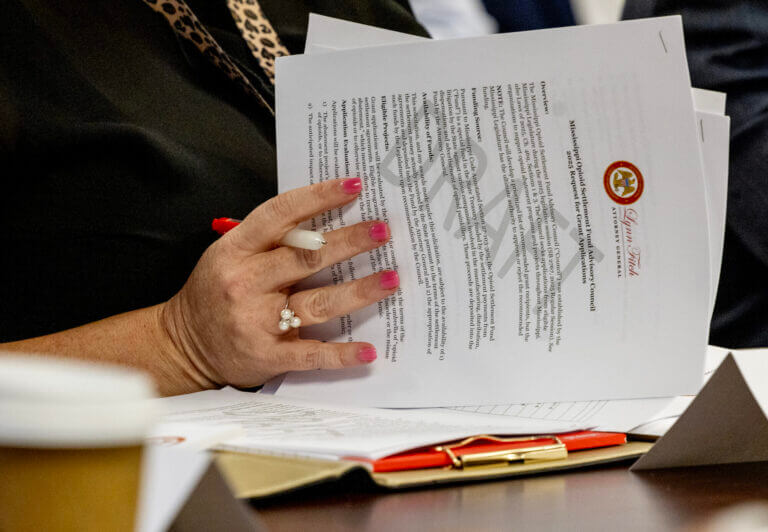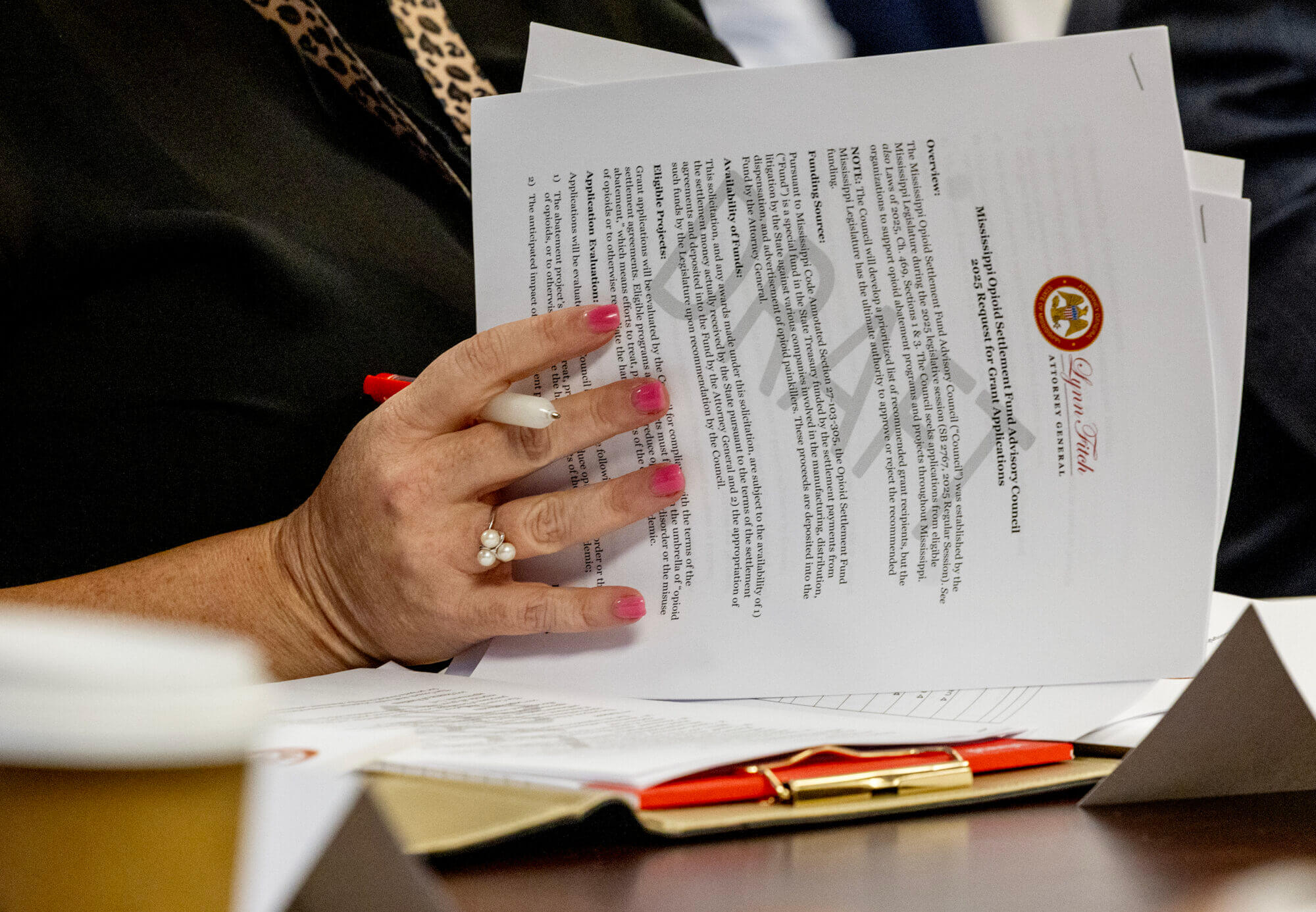

Mississippi’s Opioid Settlement Fund Advisory Council has finalized and expects to soon release grant applications for the tens of millions of dollars it oversees, moving the state closer to using its settlement money to address addiction.
The council held a make-up meeting in Jackson late Friday afternoon after a virtual session was derailed by hackers last week. Many committee members, including council chair Attorney General Lynn Fitch, were not in attendance.
One of Fitch’s special assistants, Caleb Pracht, and her chief of staff, Michelle Williams, provided the council members draft versions of committee rules, funding priorities and materials for applicants before the meeting started.
The new draft documents included some changes the members suggested from the last completed meeting, such as a scoring rubric and definitions for qualified applications. The grants would be available to organizations interested in addressing opioid addiction.
The members made a series of amendments to the procedures, such as adding language to encourage applications from underserved and under-resourced communities, encouraging applicants to submit matching funds and emphasizing that these dollars go toward helping Mississippians.
Pracht told council members he will spend the weekend making approved changes and hopes to make the application live on Monday. Williams said the grant materials will be accessible on Fitch’s website.
While the state Legislature has tasked the council with soliciting applications, reviewing them and making funding recommendations by early December, council members worried about whether they could meet that deadline and mused about asking lawmakers to push it back. Committee member Joseph Sclafani, an attorney for Gov. Tate Reeves, asked his peers if they thought all those tasks were doable in four months.
“If it’s not, perhaps we could beg some grace from our legislative members,” he told the council.
Although the council is tasked with developing the grant process quickly, Mississippi is behind most states in distributing its opioid settlement dollars. Every state that borders it has started allocating money.
Williams said Fitch’s office would be reluctant to request more time. But she said the attorney general and the council are committed to making sure their work would be completed by the 2026 legislative session, when the Legislature is expected to approve or deny applications.
“We’re going to do everything we can to make sure they get the recommendations when they’ve asked for them,” she said.
- Former Hinds sheriff Marshand Crisler’s bribery conviction stands - March 4, 2026
- National Rifle Association successfully lobbies against bill taking away guns from abusers - March 4, 2026
- Data center proposed for Clinton - March 4, 2026